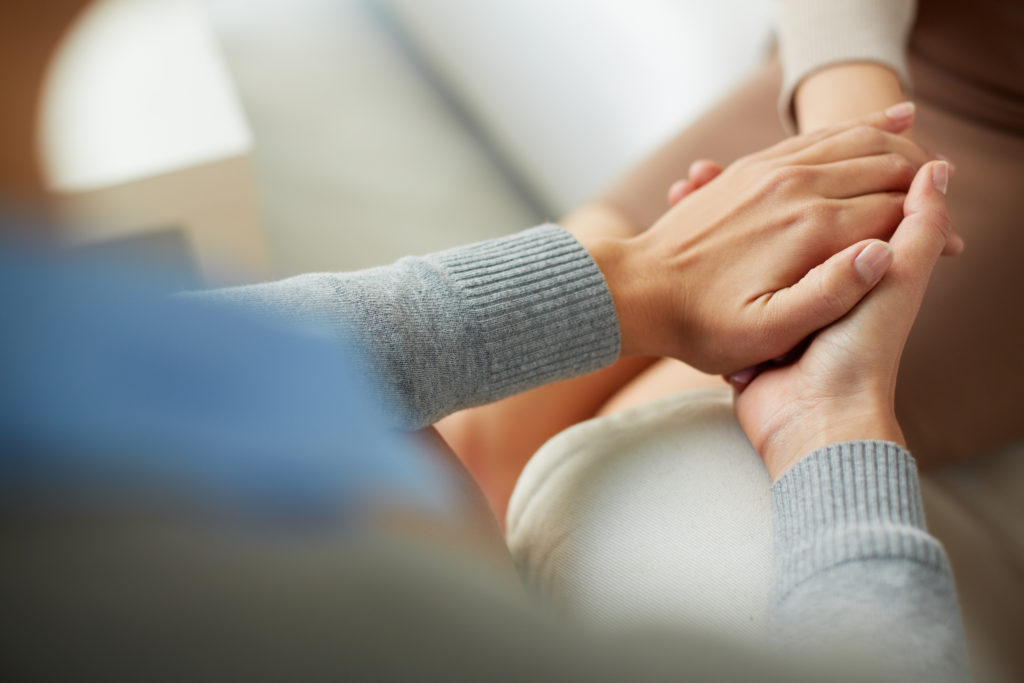- Calls to this hotline are currently being directed to Within Health, Fay or Eating Disorder Solutions
- Representatives are standing by 24/7 to help answer your questions
- All calls are confidential and HIPAA compliant
- There is no obligation or cost to call
- Eating Disorder Hope does not receive any commissions or fees dependent upon which provider you select
- Additional treatment providers are located on our directory or samhsa.gov
Protect Your Eating Disorder Recovery

Contributor: Joanna O’Neill, LMFT of EDEN Treatment Center
The world currently exists in a state of uncertainty and desperation. People feel helpless in the face of a viral predator they cannot see. Concern regarding work and finances has become the norm. Moreover, living in isolation, which is contrary to healthy human existence, only serves to intensify fear, loneliness, and worry.
This is a perfect storm for a constellation of mental health issues to take hold and thrive. Not the least of these is eating disorders.
Even before isolation went into effect, social media was alive with alarmist chatter about the unavoidable impact a quarantine would have on women’s weight. And this relentless talk continues with dark predictions of the COVID 15.
This is an obvious spin-off from the freshman 15, a term that triggers intense weight-gain anxiety in many first-year college students. At Eden Treatment Center, we are very concerned about those in eating disorder recovery. As such, we offer the following practical suggestions to help sustain and support your journey:
Remain in Touch in Eating Disorder Recovery
Isolation is an eating disorder’s best friend; therefore, stay connected with your support system. Plan group chat sessions, book discussions, lunch, or dinner dates.
Prop up your phone and do an art project or cook a meal with a friend. Schedule appointments with your therapist, dietitian, or medical doctor if necessary. Organizations such as the National Eating Disorders Association (NEDA) offers lists of low-cost or free virtual support groups that you can join.
Use Social Media Wisely
Social media is a double-edged sword. It can be your closest ally or your worst enemy, especially now. Limit usage and focus on positivity. Do not fall victim to photo comparisons, fat-shaming posts, or content inordinately concerned with weight or appearance.
Be Kind to Yourself While in Eating Disorder Recovery
Recognize, then make peace with the fact that you cannot control the universe right now—no one can. Maintain a healthy structure. Commit to getting up and going to bed at a normal time.
Do not convince yourself that you have nothing to get up for. Make self-care an absolute instead of a luxury. Be intentional about allowing your body to experience joyful movement, whether in a restorative yoga class or just dancing to your favorite music.
Give your body the food it needs and deserves. Toward that end, set an alarm for meals and snack times. Nurture your mind and spirit by placing post-it note affirmations where you will encounter them.
Prepare for A Return to Normality
 This season, with all its fears and hardships, will eventually end. Although difficult to imagine, weight-loss programs, workout facilities, and over-the-counter diet drugs and supplements can’t wait to get you back on board.
This season, with all its fears and hardships, will eventually end. Although difficult to imagine, weight-loss programs, workout facilities, and over-the-counter diet drugs and supplements can’t wait to get you back on board.
The very marketing firms that are telling you to sit on the couch today and eat home-delivery food will be vying for your consumer dollars tomorrow. Here is what all appearance-based advertisements–whether skin potions, makeup, or weight-loss products—have in common: they must make you feel bad about yourself.
Only then will you purchase the item or service. Do not buy into manipulative and false claims regarding how you got out of shape during isolation.
Staying well is paramount in the days and months ahead. But only you can protect your eating disorder recovery. Continue doing what you know works, and keep your eyes on the prize: a life of integrity, honesty, balance, and joy.
Eden Treatment Center, a Las Vegas-based program, was launched in 2020 to meet a critical need. Women, 18 and older, were searching for a private, protected environment to heal from an eating disorder.
The opinions and views of our guest contributors are shared to provide a broad perspective on eating disorders. These are not necessarily the views of Eating Disorder Hope but an effort to offer a discussion of various issues by different concerned individuals.
We at Eating Disorder Hope understand that eating disorders result from a combination of environmental and genetic factors. If you or a loved one are suffering from an eating disorder, please know that there is hope for you, and seek immediate professional help.
Published June 1, 2020, on EatingDisorderHope.com
Reviewed & Approved on June 1, 2020, by Jacquelyn Ekern, MS, LPC

The EatingDisorderHope.com editorial team comprises experienced writers, editors, and medical reviewers specializing in eating disorders, treatment, and mental and behavioral health.

